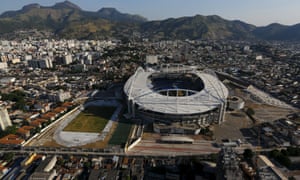Rio Olympics: who are the real winners and losers?

"The run-up to every Olympics is marked by anxiety and controversy, but Rio de Janeiro has arguably outdone all of its predecessors on this score. Against a backdrop of economic recession, the impeachment of Brazil’s president Dilma Rousseff, a Zika epidemic, resurgent crime and water pollution, the city’s officials are not only having to fight off accusations of corruption, incompetence and unbalanced priorities, they are also battling to justify whether the Games were worth hosting in the first place.
In this polemical combat, the establishment - the Rio city government
and the International Olympics Committee - argue the event boosts
economic developments and raises the global profile of the host.
Challenging this is an array of social activists, critical academics,
political opponents, displaced residents and environmental campaigners
who argue that the Olympics are disruptive, destructive and skewed to
benefit a wealthy elite.
But beyond all the angry headlines, is it possible to assess exactly how this city of more than 6 million people has really been impacted – for good and bad – by the awarding of the Olympics in 2009? To assess this in the long term, it is necessary to go beyond the media furore and focus instead on the likely legacy for Rio’s residents."
read article by jonathan watts and bruce douglas
But beyond all the angry headlines, is it possible to assess exactly how this city of more than 6 million people has really been impacted – for good and bad – by the awarding of the Olympics in 2009? To assess this in the long term, it is necessary to go beyond the media furore and focus instead on the likely legacy for Rio’s residents."
read article by jonathan watts and bruce douglas
Rio Olympics: who are the real winners and losers? | Cities | The Guardian


